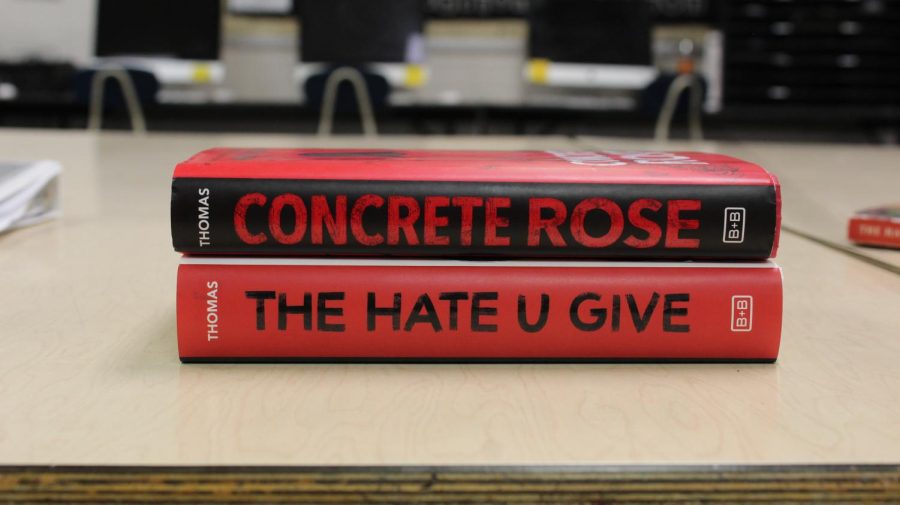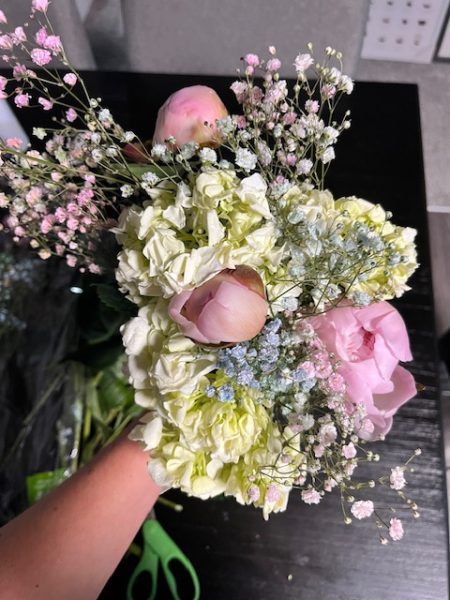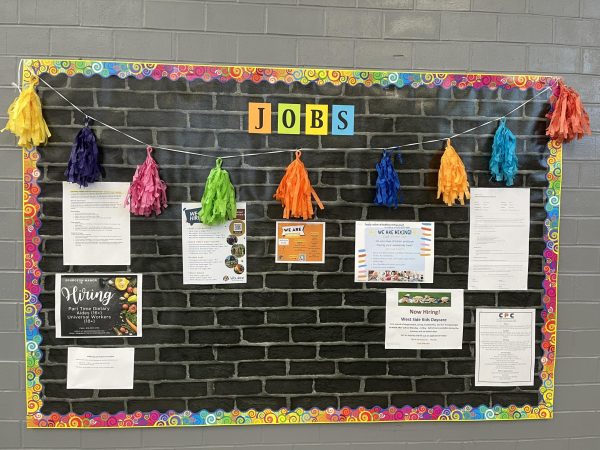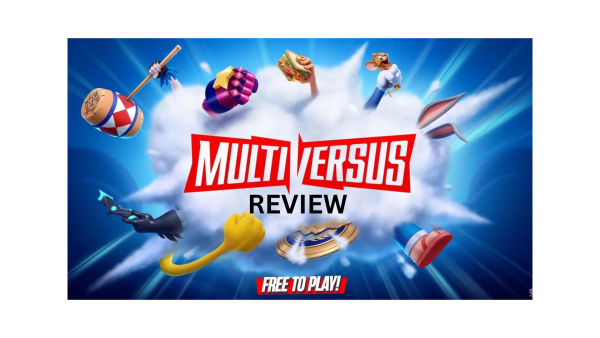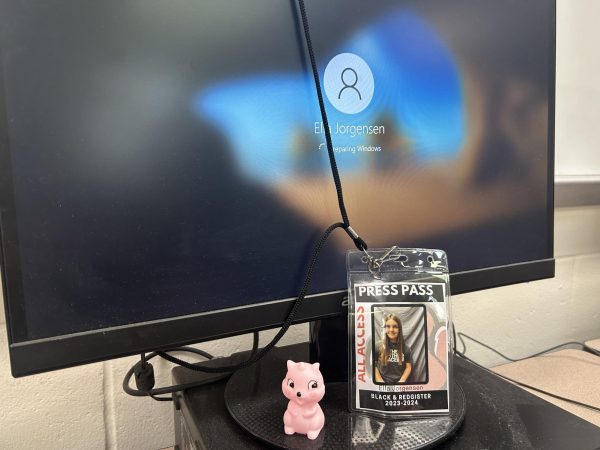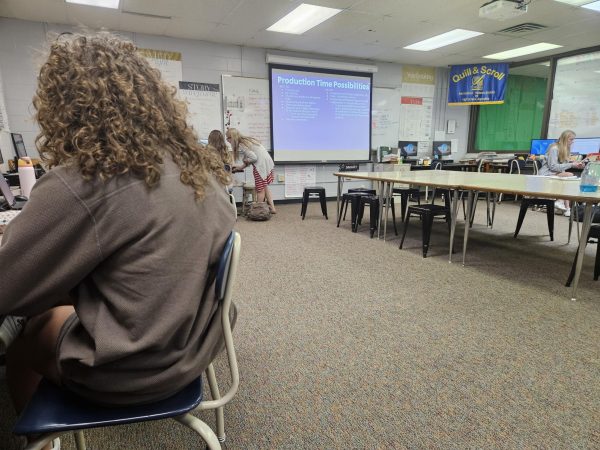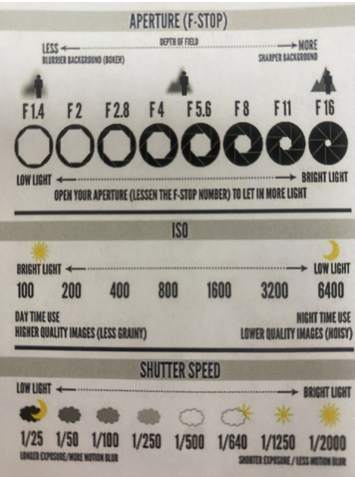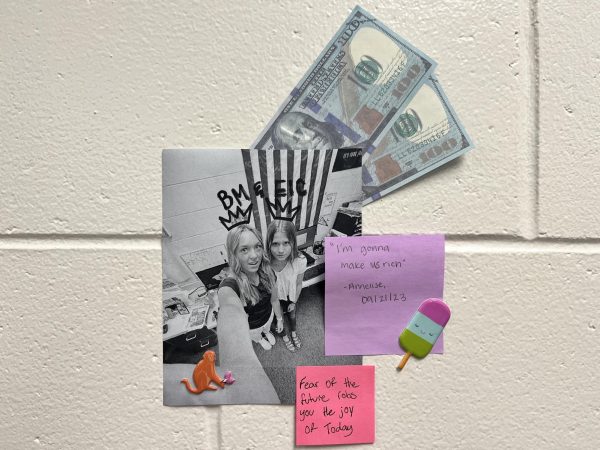Book Review: The Hate U Give and Concrete Rose
Photo by Haley Gonzalez
Angie Thomas might just be the best activism writer of the decade. Angie Thomas is the author of The Hate U Give and Concrete Rose. To preface, The Hate U Give was written and published before Concrete Rose, but chronologically the story begins with Concrete Rose. Confusing, I know, but bear with me. I decided to read the books in chronological order, for my own sanity’s sake. I’m too nosy and curious to wait to find out what some of the references mean. So, I will review in the order I read.
Before we get into it, here is your red flashing light SPOILER ALERT. I mean it’s too bad. But read at your own risk.
Concrete Rose. First, just allow me to say, what a book. What a freaking book. The story begins with a young teenage boy named Maverick. Growing up in what he describes as the ghetto, Garden Heights, gang life thrives and consumes the lives of the residents. Maverick’s father was one of the leaders of their gang, the King Lords, so it was only right for Maverick to assume his role in the gang as well. Maverick’s father was a major drug dealer who got locked up when his son was only 8 years old. The majority of Maverick’s life, his communication with his father had been trips to his prison and family phone calls.
When Maverick turns 18 years old, he realizes how much a rash decision can impact his life. Not even out of high school yet when he discovers he is a father of two, with two baby mamas. He has to figure out how to provide for his family, make right with his girlfriend, and get out of his gang. Selling drugs might make fast money, but Maverick doesn’t want to live like that. Lying and sneaking around only got him and his dad so far, so he knows he needs a new plan. His story is not an uncommon one, but it is often untold.
Angie Thomas writes from the perspective of Maverick, using his tone, his slang and his feelings to convey to the reader what it would be like to be in his situation. I have never related more to a book on a topic that I know nothing about until now. As the reader, you will find yourself rooting for all the characters, not just Maverick, because at some point you become a part of his life too.
Maverick is constantly a victim to racial profiling and offensive stereotypes. This consciousness of his behavior and how it reflects not only him as person, but his race as a whole, has encouraged him to change his lifestyle. Witnessing the death of a family member, the struggles of poverty, and the fast life of drugs and crime, Concrete Rose is able to depict the story line you would not typically empathize with. Reading the novel just proved to me that no matter who or what kind of person you are, everyone has good in them.
Fast forward 16 years into the future, and The Hate U Give begins. Maverick is married to his baby mama Lisa and their daughter Starr is 16 years old. Maverick is raising his other child from a different mother, and then his youngest child, Starr’s full brother. Still living in Garden Heights, but disassociated with any gang activity, the family has sent the children to a private school 45 minutes away from home for a better education. Each child is an exceptional student, maintaining grades and scholarships. It is not a secret that they stand out in Garden Heights, it is just a matter of if it’s a good or bad thing.
Maverick owns the very grocery store that saved his life when he was in his teens. The owner took him in and showed him how to live and make a life for himself, with the absence of gang banging. Instilling in his kid’s mind, from a very early age, the same mentality, Starr and her siblings were kept on a short leash. They knew better to get involved with any criminal activity and had a lot of respect for their parents.
Though Starr understood everything her parents would preach to her about the importance of her behavior, she still wanted to feel like a kid, and have fun. I mean, who wouldn’t? So over spring break her “friend,” Kenya, takes her to a party in Garden Heights. Starr knew it she was out of place, because it was not uncommon for kids her age to be wrapped up in gang life, so she would stick out like a sore thumb. Regardless, she found a friend there. She grew up with a boy named Khalil, who she hadn’t talked to much recently, her best friend as a child nonetheless. They were beginning to catch up with each other when shots went off. A fight had broken out. Again, this was not uncommon in Garden Heights, but it ended the party real quick. In a panic, Starr couldn’t track down Kenya, so Khalil took her home.
Or tried to. Khalil was driving Starr away from the party, when he was stopped for a traffic violation. Well, that was the excuse at least. Aware of their skin color, more than ever, in front of a police officer, Starr and Khalil did their best to remain calm. I recommend letting Angie Thomas dive into the details of the traffic stop, because she will do it much better than me. But in summary, the officer found Khalil to be a threat, even though he was weaponless, and a bit mouthy, even though he was being searched unlawfully. He was shot. And killed.
With Starr in the passenger seat, she had just had the worst experience of her life. Her childhood best friend has been murdered, in front of her face. Because he was black. And to make it worse, the gun was now being pointed at her. First, all of her neighborhood, then the town, then the state, and then the world, heard about the shooting. It was a headline for weeks. But it didn’t feel like that to Starr. To Starr, it was the death of a loved one. She found herself pushing everyone away, and keeping her emotions and her story to herself. Until finally, push came to shove.
The majority of the book is Starr’s struggle between internal emotions and how they reflect her as a person to the the activism she feels inside herself screaming to defend Khalil. Her parents guide her in a way that no one else could, because no one understands like them.
Her father constantly reminded her of Tupac’s mantra, T.H.U.G. L.I.F.E., in order to instill strength inside of her. The Hate U Give Little Infants Fucks Everybody. What does that mean? What does that mean to Starr? And what does that mean to the reader?
The oppression that black people have to deal with, even from the youngest ages will cause unrelenting issues, not only in their own lives, but in society as well. There was a major uproar in the country when the hate that killed Khalil was exposed. That is not just affecting his community, his state, but his nation. There are many ways to interpret Tupac’s and Angie Thomas’ words, so I recommend reading them for yourself.
Make your own inferences, make your own reflections. I believe the purpose of Thomas’ writing is to make you reflect. To make you think about society and the role you play in it. The novel The Hate U Give has much more purpose than explaining the daily struggles in a black person’s life. Yes, it affects the person who has received the oppressive behavior, but it affects more than just them. That is the meaning behind Angie Thomas’ work. That is why we learn, alongside Starr, how the main issue in the book affects not only her. But her community. Her school. City. State. And world. So do that, if not for me then for all the Khalils and all the Starrs in the world who receive hate, that fucks everybody.
Like to Know:
Billboard article of Tupac’s most progressive songs: Click Here
Concrete Rose hard copy: Click Here
The Hate U Give hard copy: Click Here
Angie Thomas Website: Click Here




